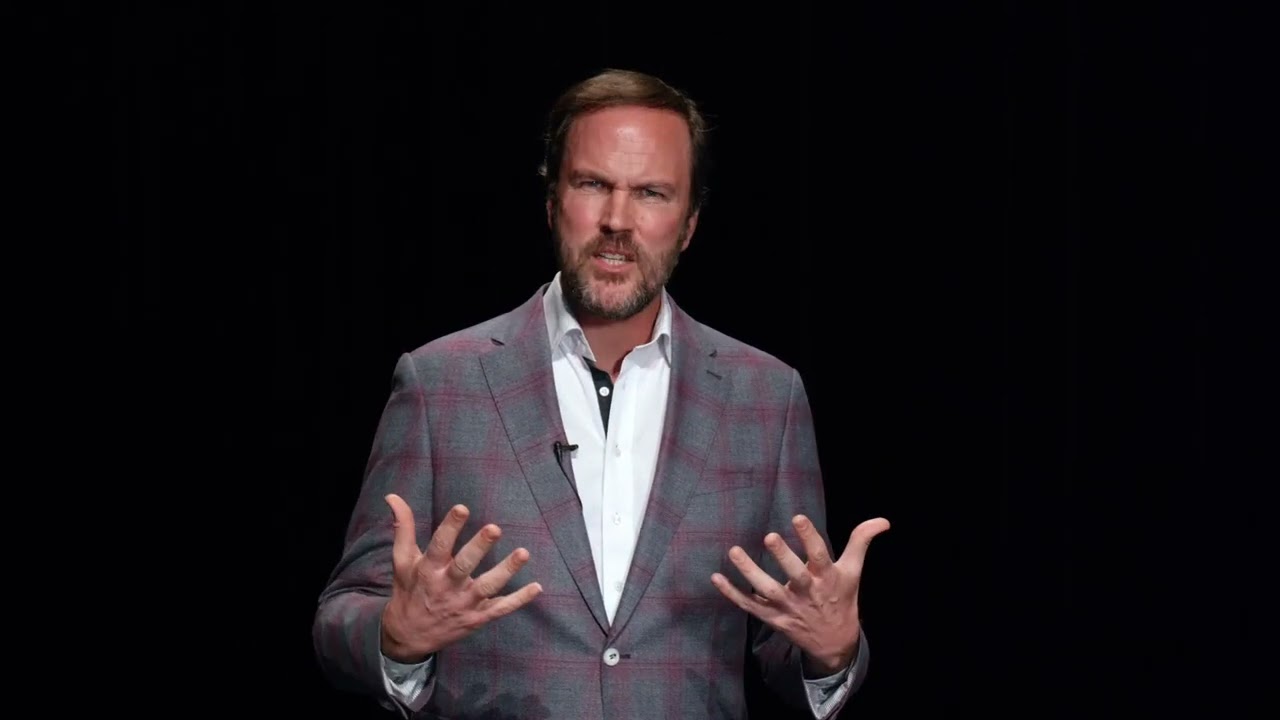By Sabine Ebanks and Aimilia Konialidis, year 12
Amid the controversy over Ecolint’s response to the Ukraine invasion and the article published recently in Bloomberg Businessweek calling out Ecolint for racism, the Express interviewed Dr. Hughes for his take on these issues.
Some responses have been edited for length and clarity.
Can you talk us through the school’s initial reaction to the conflict in Ukraine?
As soon as I heard that there was an invasion, I called an assembly. We put the flag at half-mast and I Informed students that conflict had broken out in Eastern Europe and that it was a sad day for all of us because the whole purpose of the school is an education for peace. I wanted the students to think back on the day when that conflict broke out to think, “Well, what happened at school? Did we do nothing, or was there something?” I wanted there to be something. You see, we have to stick to the charter and the mission of the school. It is not a place for personal opinions. Personally, I can say what I think of Putin, what I think of what’s happening in the Donbas, what I think of the invasion, but I don’t think that’s my role. My role is to bring us all back to the school’s mission, and the school’s mission predates and will update any conflict.
Why was the decision taken to refer to what Ecolint now calls an “invasion” but initially was referred to as a “conflict”?
The thing is this – what did we do about the war in Yemen? What do we do about Palestine and Israel? What do we do about Libya? What do we do about Iraq? Is the school going to take a political position on every single conflict? And they are conflicts. That is the generic term. Within conflict you have invasions, you have war, you have battle, you have a whole series of actions. I think that when it comes to international law, the idea is that countries are sovereign and that another country shouldn’t invade a sovereign country, but unfortunately invasions of sovereign states are happening just about all the time. There are tensions between Mali and France. There’s a conflict in Cameroon between Ambazonia, which is in the south of Cameroon, and the government. You have these border wars around Boko Haram in that region. You have real problems in China, the Uighur region, tensions in Hong Kong, Taiwan.
The reason why we came together on this one is because it’s on our continent, and I think when you’re a global citizen, it’s important not to just be a citizen of everything (and therefore, in a sense, of nothing). You need to be rooted in what’s happening around you. I’m acutely aware of the fact that we have Russian students, Ukrainian students, and what often happens in these incidents it’s prejudice, scapegoating, alienating, ostracising and if the school head stands up and says “we condemn the state of Russia or Russia’s decision or Putin”, aren’t we actually pushing – maybe unconsciously – students to feel they can maybe condemn Russian students? We have to create a safe space for everybody. That’s why I think the higher ground is necessary. It’s easy to fall into scapegoating, but that is not the route we will take.
It is hard to decide on the right way to apply pressure but the way that Russian people have been treated because of this is worth some critical reflection. Banning Russian films from Cannes for example – film producers and directors tend to be quite satirical, dissident critical thinkers, why are they being punished? Can you imagine if you were going to go to Cannes, or if you earned a place in the Olympics for that matter, and you were told you’re not going anymore because of what your government is doing? Is that fair? I’m also sceptical of the groupthink around criticism of Russian oligarchs – there are billionaires throughout the planet but as soon as they’re Russian they’re called oligarchs. Why is that? To me, there is a lot of prejudice in the air because of what is happening and I don’t want the school to exacerbate it.
Conflict, the invasion, but also the war because the Ukrainians are fighting back – is not over yet. And we will know the full extent of the war crimes and exactly what was done in this conflict at the end. I remember when the Nobel Peace Prize winner Aung San Suu Kyi was put up on social media and everybody was saying we stand by her but guess what, we found out, later on, she’s not that great. This was part of Luc Hamzavi’s presentation as well; history isn’t about taking sides it’s about observing what happens.
But where do you draw the line on this viewpoint? We can all agree there are certain things in history we would condemn, as a school – where do you think that line is?
First, when the full story has been told. It’s not in the middle of something – in very heated media coverage – that we’re in the best position to damn and condemn. And there is a whole kind of crowd effect here. Are we here to condemn and judge, or to form an opinion?
It’s also a question of what is the role of the school? It’s to provide an education for children. What is an education? It’s growing in your mental, social and physical capacities in a number of different domains. I do not believe that schools should be political entities. Students creating awareness groups, students advocating for something they feel strongly about, students doing fundraising – we support that. I think that is a good thing. Students marching for climate change or the Black Lives Matter movement in town or a protest movement – we try to support that because we think it’s important that they develop their own sense of engagement and their own critical faculties. If we stand up and say which side we’re on, it closes down critical thinking.
Given the work by the school’s global citizenship group and the anti-discrimination work over the past couple of years – would the school be supportive of a movement that is anti-discriminatory?
We’re against discrimination. It’s not the same thing as saying we stand by one political nation-state entity and not another. It’s the criticism of another nation-state that I am uneasy about. Which anti-discrimination movements should the school be standing by?
Well, for instance, the global Black Lives Matter Movement is a fairly non-controversial movement that has been supported by many international organizations. Would the school be supportive of that?
It is in our ethos and charter as an international school to create an environment for many people to live together and not to stand by political entities. But what is the Black Lives Matter movement? Who is the leader?
I don’t think there is one.
See, it’s a little bit tricky. The values behind it might be something we espouse; exactly how it plays out in action is something slightly different. There are things that happened in universities under the banner of Black Lives Matter that maybe we would not agree with. But who is “we”? It’s easy to talk about “we”, but what do you mean by “we”? The school? If we’re talking about the school, we go back to the foundation, our charter, and article 3 of our charter: that is who we are. If it’s about spokespeople, Dr. Hawley, or myself, or Mr. Gyr, saying “this is what we stand for”, they need to remind everybody what the premise of the school is and, in a sense, no more. That is the fairest way forward. It’s the difference between an educational institution, which should be a haven of critical thinking and freedom of thought, and a political movement. And [it is] certainly [different from] a nation-state which has a military, which is bound by international law, which has a penal code.
Is it fair to say that, for the school, it’s more about values than the individual group or movement?
That’s a good way of putting it.
Now, moving on. Were you taken by surprise by the Bloomberg article?
No. There are two ways to respond to the article, the defensive and the accepting. I am more accepting than defensive. It’s a disgrace for us as a school to see the article, and it’s painful to see that any student should have gone through what is described. The worst thing in the article was when I read that students had the guts to do a presentation for the staff on what it’s like to be from a minority group and then they got told off by staff. It’s totally unacceptable.
As an institution, we have to realise two things. First of all, there is systemic racism in international schools. By systemic I mean it’s structurally embedded. Faculty tend to come from the same place and children don’t see representative faculty or the kind of diversity that allows everybody to feel they have role models. It’s ironic that there is more of that problem in international schools than in national schools.
Secondly, we have to improve as a school in our efforts at diverse representation and equity. And that’s about staffing, the type of teachers we bring in. It’s about the curriculum: what we’re learning, where it’s from, why, and how. It’s about the messaging students get from the school assemblies, guest speakers and it’s how we protect students who are the victims of discrimination.
How do you deal with families who have different values from the school when it comes to discrimination, like those who do not support the decolonisation of the curriculum? How do you confront that?
It’s important to understand that we are not ideologues, we are educators providing students with cultural literacy. LGBTQ+ and decolonising the curriculum are becoming important knowledge poles in the world. They are very prevalent in tertiary education, so I think it behoves us to prepare our students for that environment, at least with the knowledge and thinking behind it. I have also written quite extensively on decolonising the curriculum. It is not an ideological movement, it is actually to take away some of the latent ideology that is in the way the curriculum is presented to us. At some point, you have to stand back and think: “Why is what I am learning in history, science, social sciences basically always about dead white men European men who tend to be white Anglo-Saxon protestants? Is there not some other voice that we can get?”
There are also important conflicts that shape modern history that we don’t talk about, like the war in the Congo, Palestine, and the whole Middle East region. The whole decolonisation of the colonised world as a historical process is really important to understand and can explain a lot of what is going on. It can actually explain what is happening in Russia and Ukraine. You can understand a lot better if you look at what happened after the fall of the Soviet Union, and in the Balkans, which is a type of decolonising period. Some might think that the school wants students to think the same way, which is not what we want. We are going to provide you with as much as we can while you are here so that you’ve got rich information to make your own decisions and opinions, and so you are able to have your own discussions at university. We don’t want you to arrive at university and have never heard and thought about any of this.
One other thing: when students come to me and say we want to have a pride assembly or we want to write an inclusivity toolkit, I don’t want to turn around and say “No, we’re not going to do that”. I want the school to be there, and I think it’s important for many students. I am also frustrated that there are still cases of discrimination that don’t come to us, that we hear about inadvertently. There is a lot of work to do. I am very happy to see what the French Department is doing about the Semaine de la francophonie; one of the films “Être Noire En Suisse” is extremely interesting and informative. It shows you what it actually means to be constantly frisked and checked on trains, to be sneered at in job interviews, not to be taken seriously, to always feel like a second-class citizen – it’s a very racist environment that predominates in Western Europe. And I think it’s important that we accept that and understand this structural systemic racism – not walking around pointing a finger and saying “you’re a racist”, “you’re a racist”. It’s more subtle than that. It’s built into the DNA of so much of what we do.
How do you go about changing the systemic racism in an institution like this?
To me, diversity is important. I look at my leadership team and I’ve been careful to identify equal gender balance. We represent India, South Africa, France, Switzerland, Lebanon. If I look at the different departmental teams of teachers, I believe we are reasonably diverse and that we are on a path to be even more diverse. When you look at a teacher, you’re not just looking at a technical expert, you are looking at someone who brings their culture and their identity to the classroom as well. It is also about educating everybody involved in search panels to open their minds to candidates that way because what you get sometimes is the separation of talent and diversity and saying “we need the best candidate”. But what does the best candidate mean in an international school? We want students to be internationally-minded. If all they are getting exposed to is one type of cultural viewpoint all the time, how is this possible?



